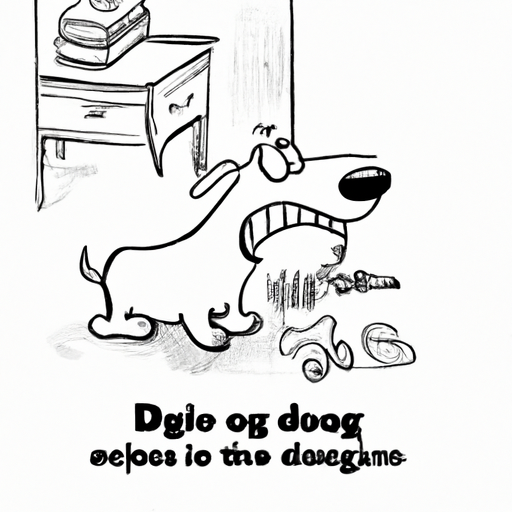As a dog owner, you’re likely familiar with the occasional chewed-up shoe or gnawed-on furniture leg. Dogs, especially puppies, explore the world through their mouths much like human babies. But what if there was a way to discourage this behavior using scents that dogs dislike? This article will explore what smells dogs hate to help you stop their chewing habits.
Table of Contents
- Understanding Why Dogs Chew
- Smells That Dogs Hate
- Using Smells to Stop Chewing
- How to Apply the Smells
- Frequently Asked Questions
Key Takeaways
- Dogs chew for various reasons, such as teething, boredom, and stress.
- Certain smells, like citrus, hot peppers, and vinegar, are generally disliked by dogs.
- These smells can be used in a safe and non-harmful way to deter dogs from chewing on certain items.
- It’s important to apply these smells correctly and to also address the underlying causes of the chewing.
Understanding Why Dogs Chew
Before we dive into the scents dogs dislike, it’s important to understand why dogs chew in the first place. Chewing is a natural behavior for dogs. Puppies chew when they’re teething, while adult dogs might chew to keep their jaws strong and their teeth clean. However, excessive chewing can often be a sign of boredom, anxiety, or stress.
If your dog is chewing out of boredom, it may be time to provide more mental and physical stimulation. A long walk or play session can do wonders. If anxiety or stress is the issue, it may be beneficial to seek the advice of a professional dog trainer.
It’s important to remember that while the use of unpleasant smells can deter chewing, it should not be used as a substitute for addressing these underlying issues.
Smells That Dogs Hate
Now that we understand why dogs chew, let’s explore the smells that they generally find unpleasant. These include:
-
Citrus: Dogs typically dislike the smell of citrus, whether it’s oranges, lemons, limes or grapefruit. Using citrus peels or citrus-based sprays can be an effective deterrent.
-
Hot Peppers: Capsaicin, the compound that gives hot peppers their heat, is irritating to dogs. A small amount of hot pepper sauce applied to an item can stop a dog from chewing it.
-
Vinegar: This strong-smelling substance is another scent that dogs tend to avoid.
-
Menthol: Found in products like Vicks VapoRub, the strong smell of menthol is unpleasant to most dogs.
Remember, these scents should only be used in a safe, non-harmful way. Never apply hot pepper sauce or other irritants directly to your dog’s skin or mouth.
Using Smells to Stop Chewing
If you’re dealing with a persistent chewer, using these unpleasant smells can be an effective deterrent. The idea is simple: apply the scent to the items your dog likes to chew, and they should be less inclined to do so.
For example, if your dog is chewing on furniture legs, you could apply a small amount of citrus oil or hot pepper sauce to a cloth and wipe it on the legs. If your dog is chewing on shoes or other personal items, a spray bottle filled with vinegar can be used.
Just remember to test any substances on a small, hidden area first to ensure they don’t stain or damage the item.
Check out this helpful guide on how to stop your dog from chewing for more tips.
How to Apply the Smells
When applying the smells, be sure to:
- Apply the substance in a small, unnoticeable area first to test for potential damage or staining.
- Use a cloth or spray bottle to apply the substance.
- Reapply the substance regularly, as the scent will fade over time.
For more useful tips, see this guide on dog behavior.
Frequently Asked Questions
1. Can these smells harm my dog?
No, the smells mentioned in this article are not harmful to dogs. However, they should never be applied directly to the dog’s skin or mouth, and the dog should not be allowed to ingest them.
2. What if my dog continues to chew despite the smells?
If your dog continues to chew despite your efforts, it may be time to consult with a professional dog trainer or a veterinarian. There could be an underlying health or behavioral issue that needs to be addressed.
3. Can I use these smells to stop my dog from chewing on everything?
While these smells can be effective, they should not be used as a substitute for proper training and mental stimulation. If your dog is chewing on everything, it’s likely that they’re bored or stressed and need more exercise or mental stimulation.
For more FAQs, see this comprehensive guide to dog care.
In conclusion, while the use of smells dogs dislike can be an effective method to deter chewing, it’s important to also address the root causes of the behavior. This involves providing adequate physical and mental stimulation and potentially seeking professional help if the behavior persists. Using these strategies, you can create a happier and healthier environment for your furry friend.



